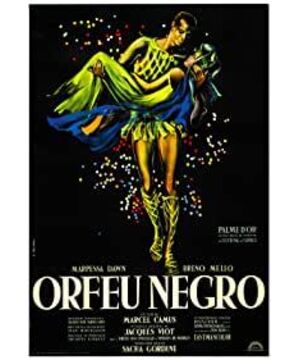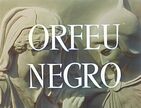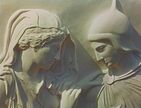The film story quoted the image of Greek mythology. Orpheus, who is well versed in rhythm, won the sympathy of Hades and rescued his beloved wife Eurydice from hell. However, on the way to the exit of the underworld, he ignored Hades's warning and looked back at his wife. As a result, Eurydice couldn't repeat it anymore. Return to the world.
In the myth, Eurydice was killed by a poisonous snake, but Eurydice in the movie was accidentally electrocuted by Orpheus. The ancient tribes, the people full of charms who danced and danced with their feet, are strangely blended with modern civilizations such as high-rise buildings and asphalt roads. Standing on the top of the mountain, there is a trace of the industrial age. Only a piece of pure land in mid-air allows people to pitch up. The whole film seems to be intentionally or unintentionally allowing people to smell the rotten smell of the deformed fetus.
Of course, when he returned to Orpheus's house, his eyes were still clean. "Manha de Carnaval (Morning of Carnival)", my favorite ballet, floated out of the cabin in the early morning before the carnival.
Although it is not documented, I directly suspect that this movie was the father of Bossa Nova (=Samba + Jazz) in the early 1960s in the United States. The original soundtrack of the film represented by "Manha de Carnaval" has also been pushed to the forefront in this new wave. Over the past few decades, many musicians and lovers have chanted.
View more about Black Orpheus reviews






